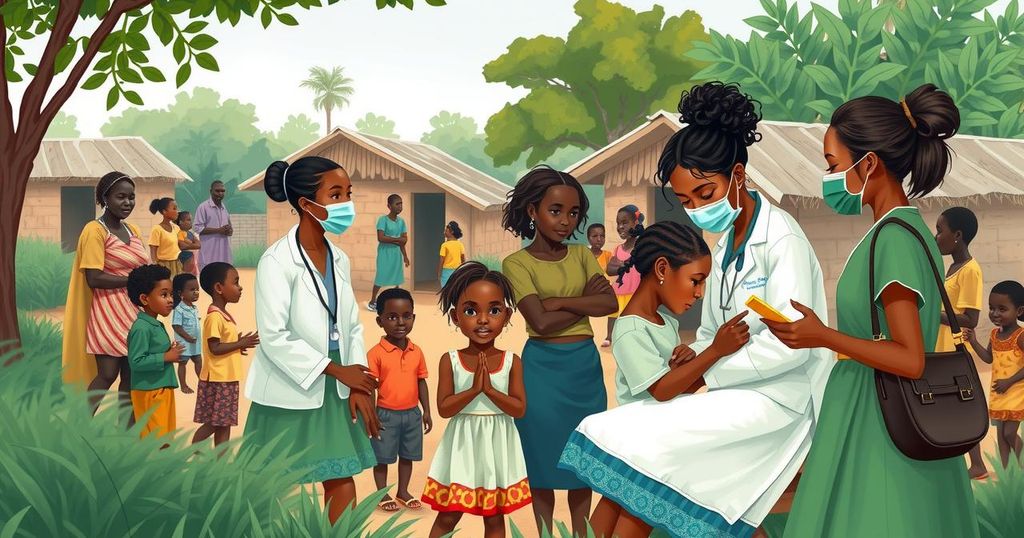Chinese Medical Team Brings Free Healthcare to Uganda’s Remote District

- Chinese and Ugandan doctors unite to provide free medical care.
- Healthcare outreach in Kikuube draws in large crowds seeking treatment.
- The camp aims to serve around 1,000 people with diverse medical needs.
- Long-term commitment from CNOOC focuses on local health and safety.
- Joint medical initiatives symbolize hope and collaboration for future projects.
Collaboration Between Chinese, Ugandan Doctors Aims to Help Many
The collaboration between Chinese and Ugandan doctors exemplifies a remarkable effort to extend free medical services to under-served communities in Uganda. In the western district of Kikuube, a combined team has been established at Buhuka Health Center III, welcoming those in need of treatment. The initiative, taking place just a few kilometers from the eastern border with the Democratic Republic of the Congo, draws substantial public interest from the local population, eager for healthcare support that has been difficult to access.
Treatment and Support for Local Residents
Despite the challenges of providing care in an area where healthcare resources are sparse, the Chinese medical team – which includes specialists in cardiology, pediatrics, and acupuncture – has set a goal of attending to around 1,000 individuals in this outreach camp. Participants like Jennifer Nyangoma, who arrived hoping for relief from persistent joint pain, illustrate the demand for such services. Testimonies from mothers like Evelyn Atuhura reveal a deep appreciation for the support provided, demonstrating the urgent need for healthcare solutions in remote regions such as this.
Long-Term Commitment to Healthcare and Global Cooperation
The annual initiative, backed by the China National Offshore Oil Corporation (CNOOC), not only emphasizes the delivery of health services but also underlines China’s commitment to cooperation in Africa’s healthcare sector. This reflects confidence in a shared vision for a sustainable future, where health and development are connected. Moreover, as outlined by the representative from the Chinese Embassy, such projects highlight the long-term promise to build more medical facilities and support educational efforts for local health workers, ushering in an era of collaboration that seeks to uplift communities. This partnership serves a dual purpose: addressing immediate healthcare needs while fostering knowledge exchange and strengthening ties between nations.
In conclusion, the ongoing healthcare initiative in Kikuube, Uganda, funded by CNOOC and manned by Chinese and Ugandan medical professionals, encapsulates a model of international collaboration enhancing local health and wellness. From acupuncture to pediatric checkups, the outreach is not merely about treatment but symbolizes hope and theoretical progress in collective healthcare. As conversations continue about the future of such programs, it becomes increasingly clear that these efforts hold the potential to make a substantial difference in communities previously lacking access to necessary medical services.







